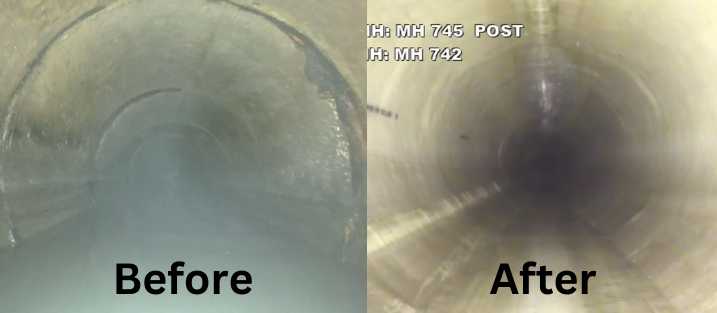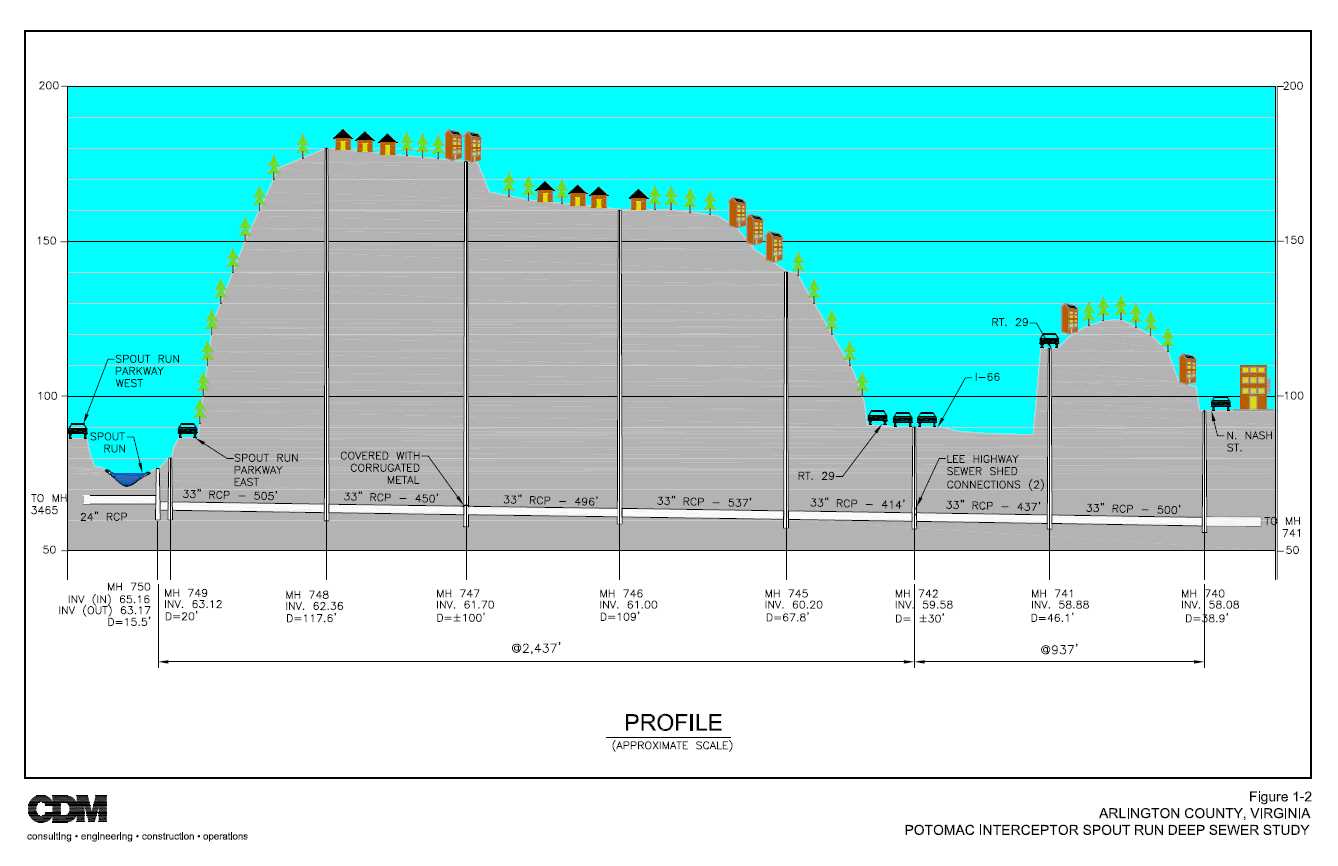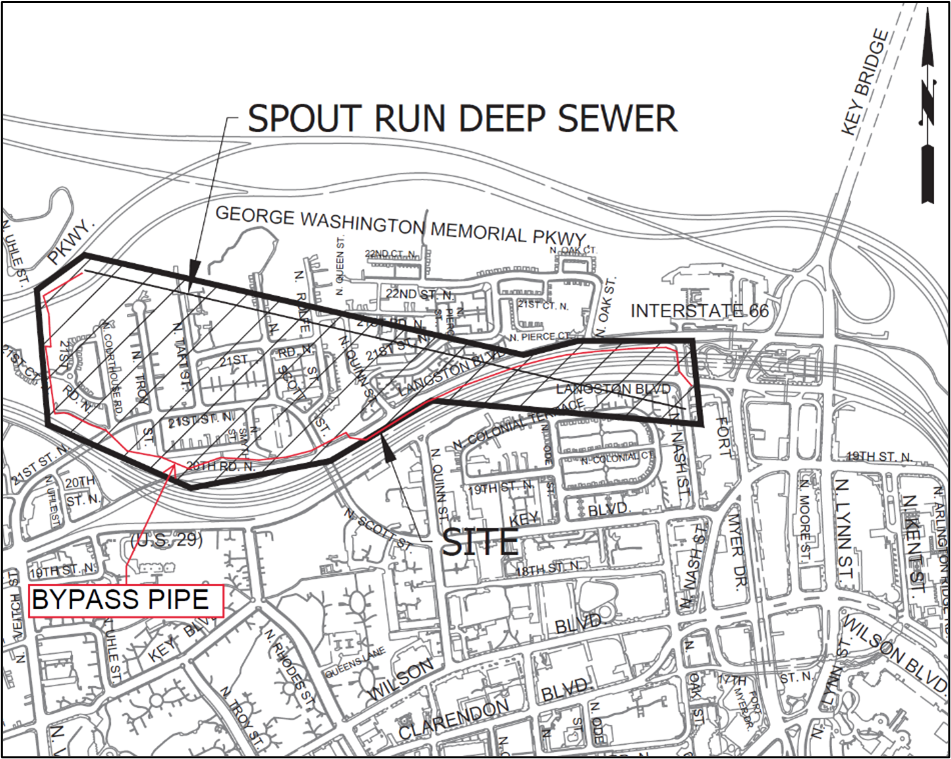A sewer repair project running underneath homes, parkland and highway lanes between the Spout Run Pkwy and Rosslyn is set to wrap up this spring.
Contractor AM-Liner East is scheduled to finish relining 3,400 linear feet of aging wastewater pipe, some of which is 115 feet below ground, by March 1.
The remainder of the Spout Run Deep Sanitary Sewer Relining project should be finished by May, said Arlington Dept. of Environmental Services spokesperson Kiara Candelaria Nieves.
“The bypass removal and restoration work are anticipated to begin on March 4 and take approximately two months to complete, weather permitting,” she said.
The project has prompted temporary lane closures — including, most visibly, along Spout Run near the merge onto the southbound GW Parkway — as well as diversions on Custis Trail. It aims to fix an 86-year-old pipe that has started to crack and corrode.
Work crews inserted a flexible liner into the existing sewer and pumped in heated water, pushing the liner against the aging sewer walls. The heat caused the liner material to harden, creating a new pipe that is expected to last 50-70 years.
The “cure-in-place” process has been used in numerous other Arlington water infrastructure projects, though the Spout Run project is at a larger scale than most.
To allow the sewer to continue functioning during repairs, workers installed a long, temporary bypass, visible above ground alongside the Custis Trail and along the median of Langston Blvd.
The $7.9 million project is expected to end approximately two months later than the county initially projected.
“So far, the project is within budget,” Candelaria Nieves said, referring to an updated budget from 2023.
The cost to repair the line, which runs under federally protected land and I-66, far exceeded the project’s original budget allocation of $5.3 million. That $2.6 million increase was due to challenges of working on high-traffic roadways and navigating permitting processes and regulations for the Virginia Dept. of Transportation as well as the National Park Service.
“It is believed that the bidders perceived significantly more risk in these bid items, which County staff consider fair given the unique challenges of this project area,” a county report said.
The county identified this sewer line for repair in 2019 after a video inspection “revealed corrosion of the concrete pipe, indicated by exposed aggregate, exposed reinforcing steel, infiltration at the pipe joints, and small cracks,” according to the report.
The project is part of a county program to rehabilitate critical large-diameter pipelines in Arlington’s 465-mile sanitary sewage system.




